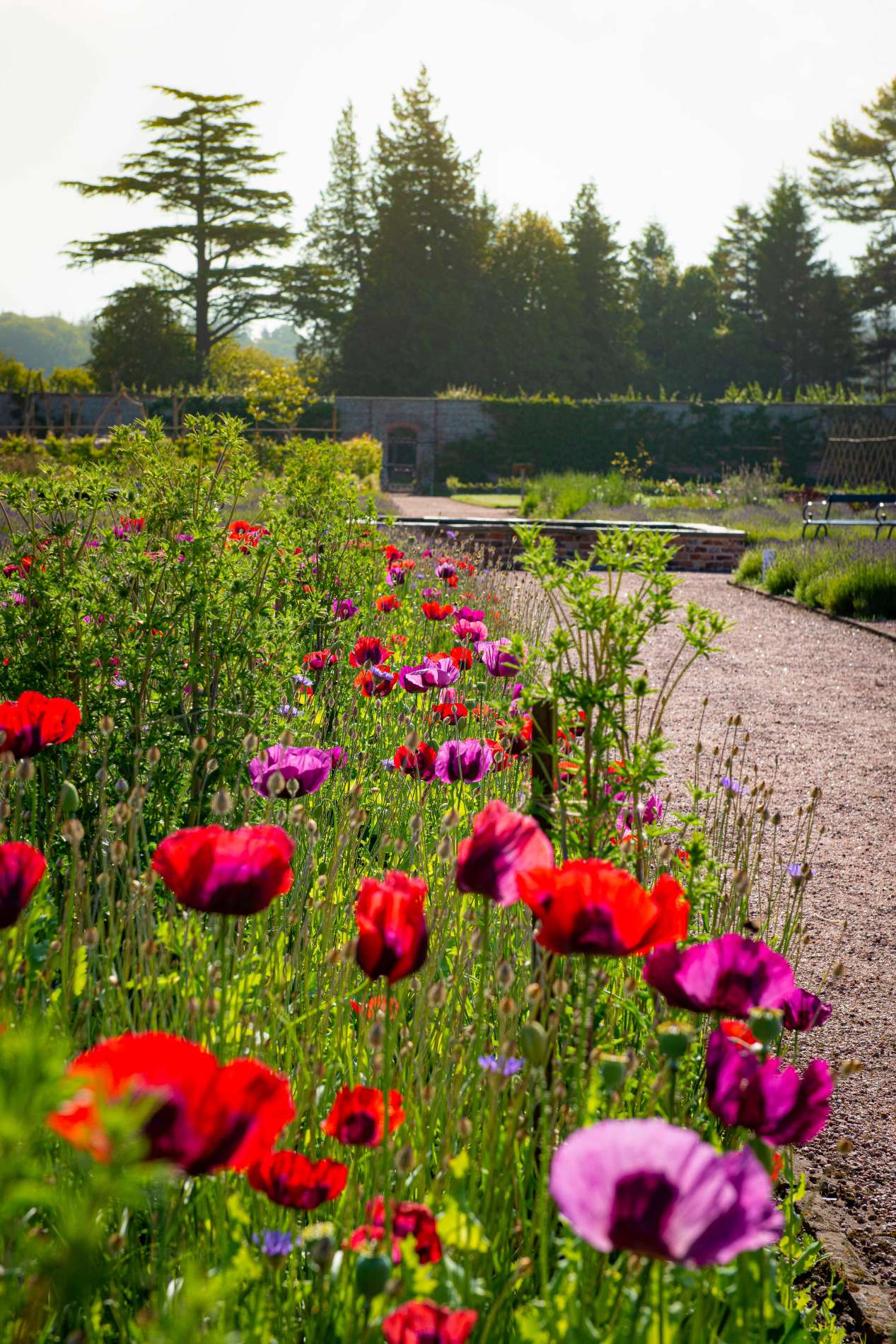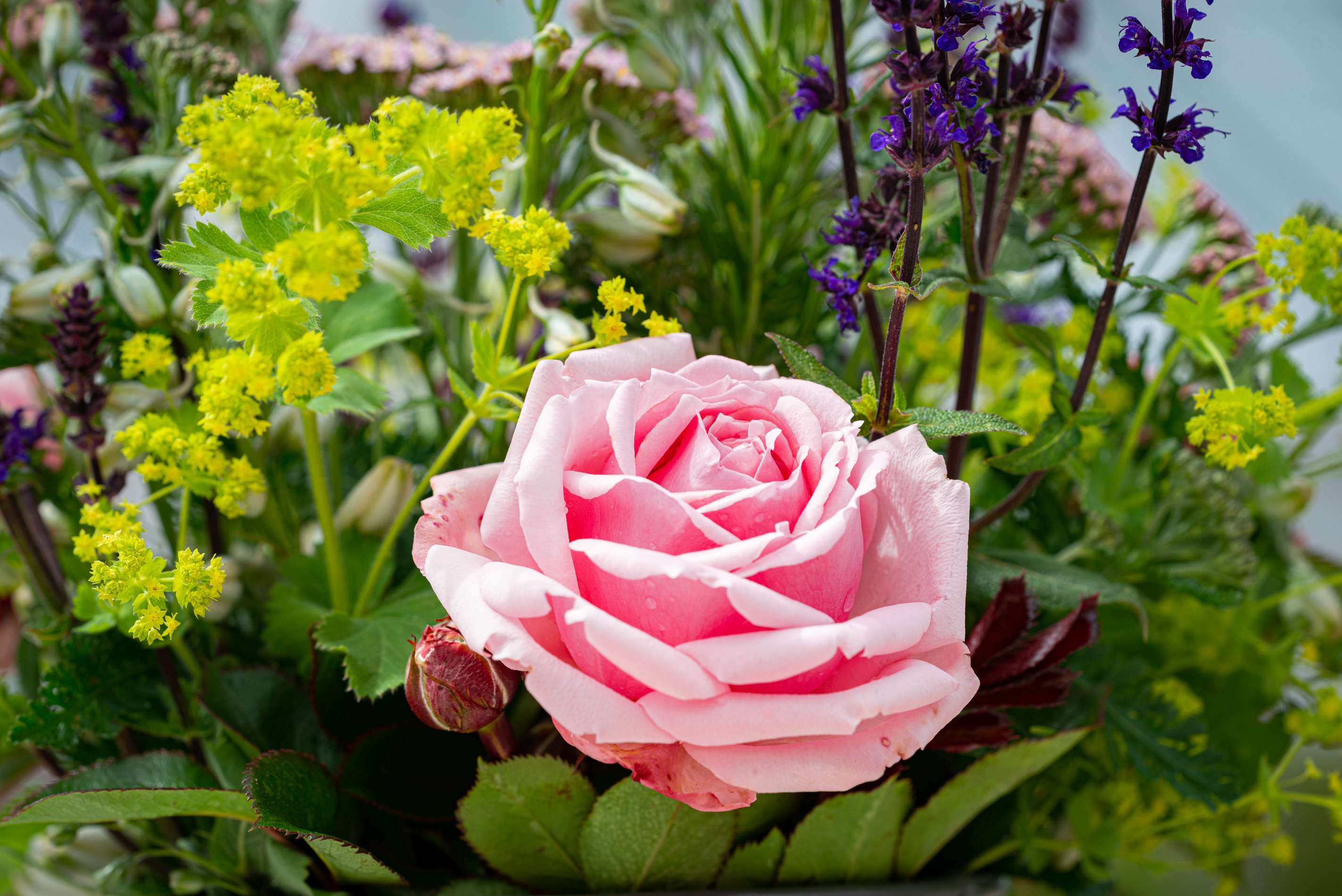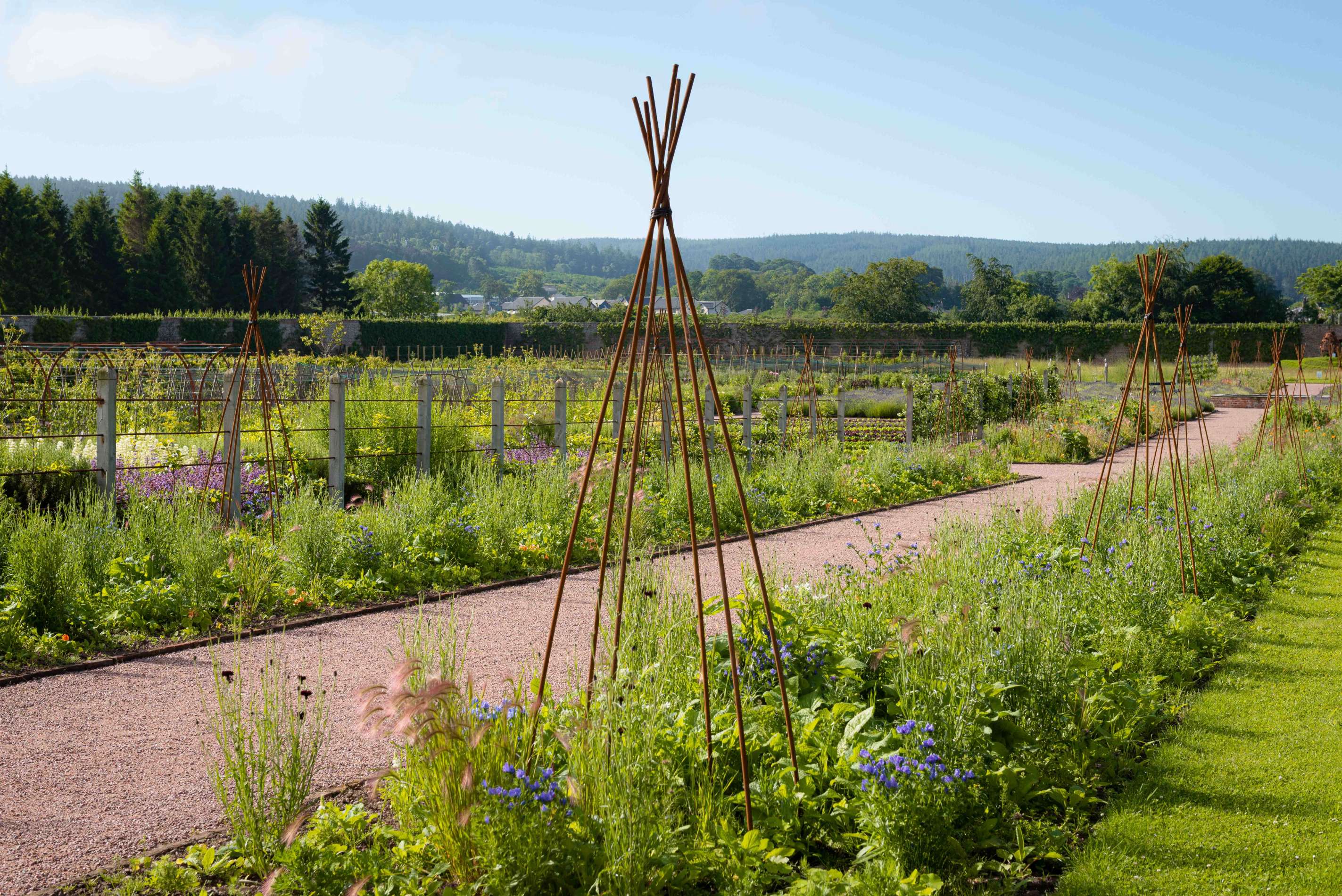The invasion of the slugs
It seems unusual to me to be working in a woolen jumper and thick overcoat during July, but then I’ve only been in Scotland for four years and I’m coming to expect almost anything from the weather this far north. The plants in the Walled Garden are as disgruntled as I am this summer. Our courgettes are sulking, refusing to flower or even put on any growth, and the French beans look decidedly sorry for themselves.
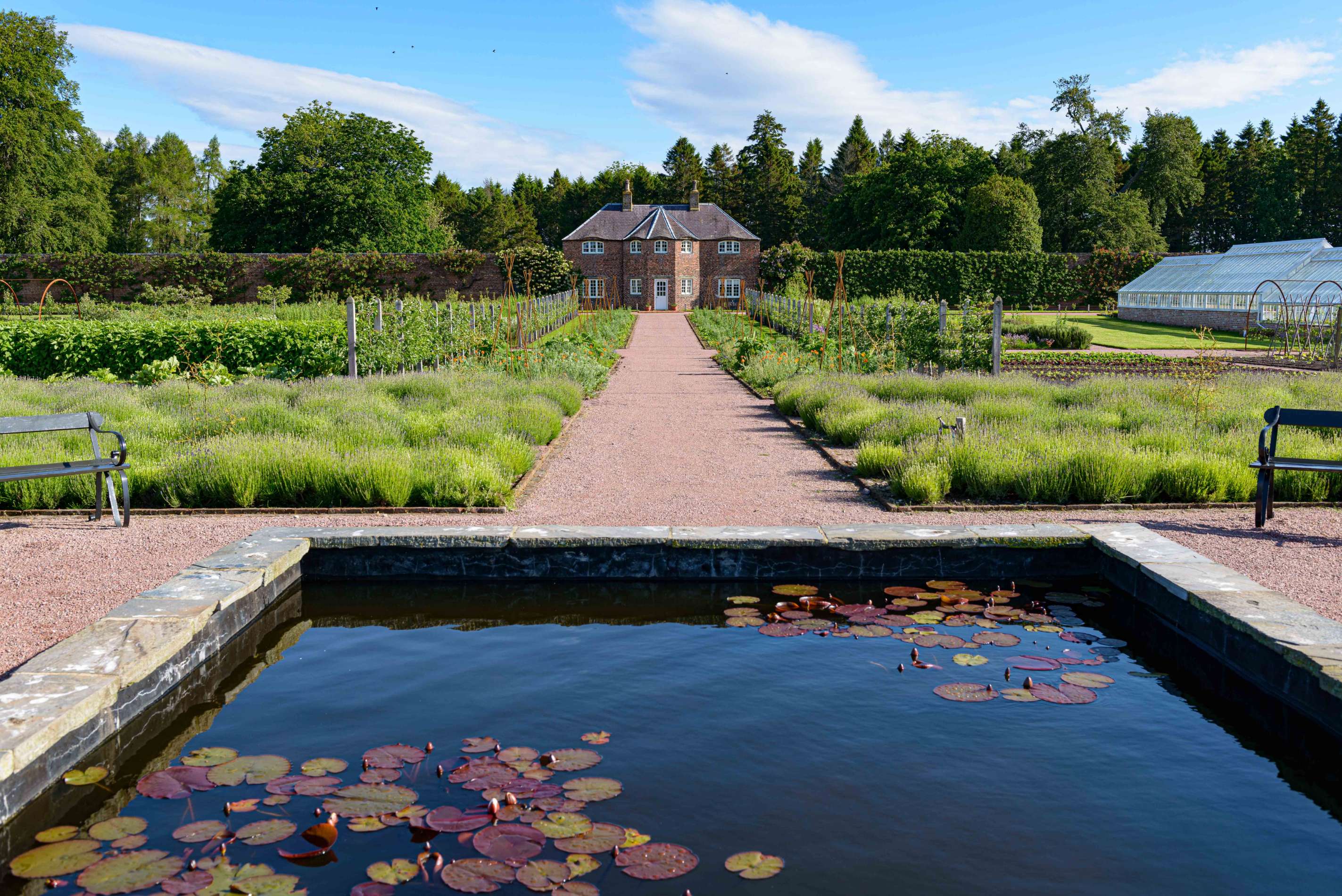
No season is perfect for every plant in the garden, and what is bad for one variety is often good for another, our brassicas are loving the cool temperatures and moist soil with huge healthy Kale leaves and wonderful Romanesco cauliflowers leading the way. Never count your chickens however, there’s invasion of Diamondback moths on the way and we’ve already seen the first of them. Tiny little buff brown ‘T’ shaped moths flitting here and there through the cabbage patch, their larva will strip a plant within just a few days if not dealt with. If you see the moths in your garden at home keep a close eye on all your cabbages, cauliflower, broccoli and kale. Regular squishing sessions should keep the caterpillars under control, but it’s best to protect your crops with very fine mesh such as ‘Enviromesh’ to avoid the problem all together.
For the first time slugs have been a major problem in the Walled Garden this year, our runner beans have been decimated, along with nasturtiums and lupins. Whilst I’m doing my upmost to destroy these dastardly mollusks, my children are collecting them up, feeding them and keeping them as pets! They inevitably escape and leave slimy trails through the house as they make their way back to the garden to gorge on our precious vegetables!
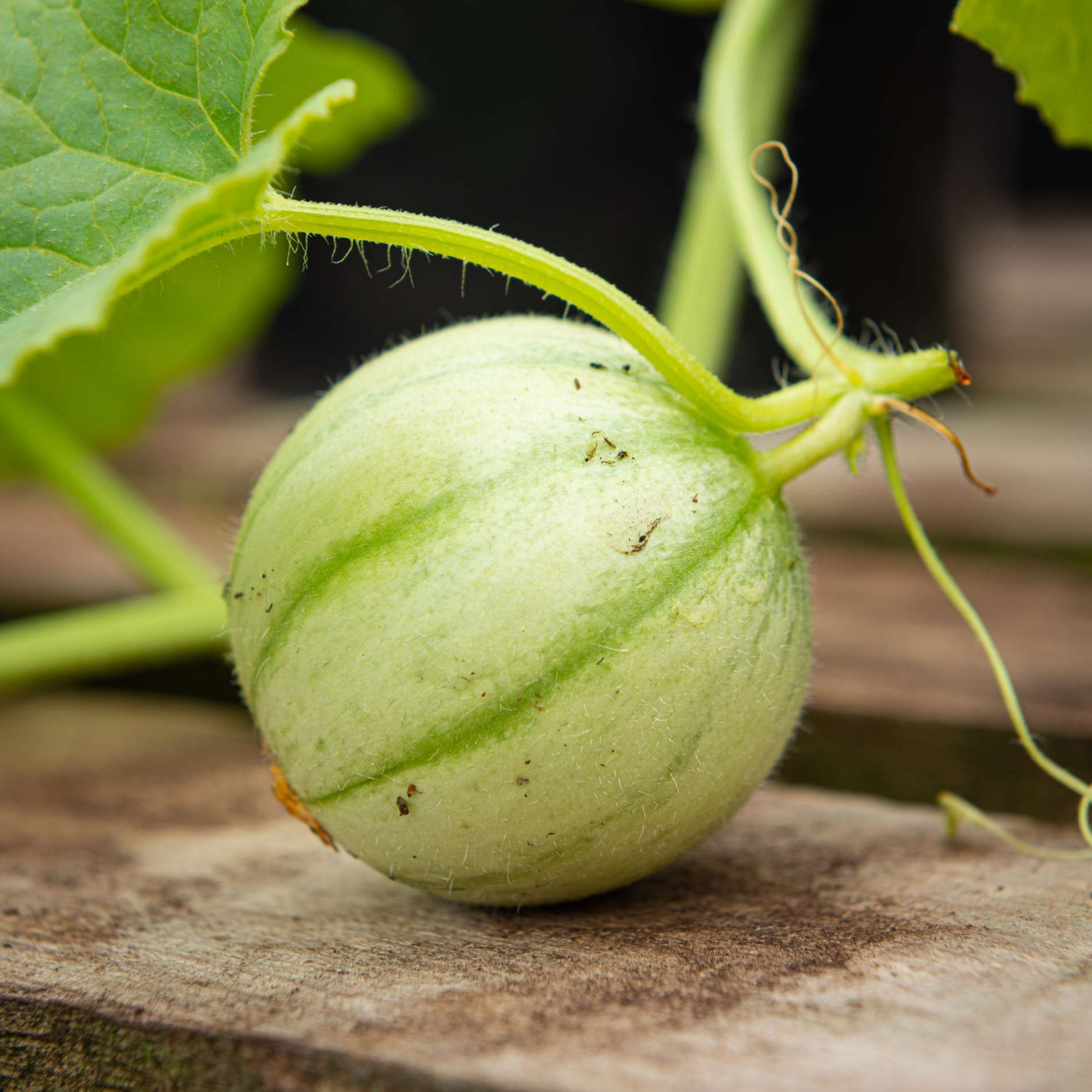
Whilst there is not much I can do about my children, there are plenty of ways to deal with slugs and snails. If you have a small garden or green house, beer traps work very well, sink a jam jar into the soil and half fill with beer and the slugs will sniff it out and spend the last few moments of their existence happily inebriated. On a larger scale ferric phosphate slug pellets can be effective, they’re certified organic and will not harm birds or wildlife. The traditional metaldehyde-based pellets won’t be available to buy from next year, and I don’t see the point in growing beautiful healthy vegetables and then surrounding them with toxic chemicals! If you are truly overrun, introducing nematodes into your soil may be the answer. Tiny, microscopic parasites, nematodes can dramatically reduce slug populations if applied at the right time of year. A product called ‘Nemaslug’ is widely available for amateur gardeners and is highly recommended.
Although the garden is growing very slowly this summer, the plants in the greenhouses are thriving. The cucumbers and melons are shooting upwards with the first baby fruits showing and our ornamental gourds are starting to produce their amazing knobbly little squash. With all glasshouse crops, especially those grown in pots, it’s really important to feed regularly. Don’t believe claims on compost bags such as ‘enough nutrients to feed plants for 6 weeks’, we’ve already seen nutrient deficiencies in both our cucumbers and tomatoes. We apply liquid high potassium feed twice a week, and every month with give our plants both iron and calcium. A sure sign of a hungry plant is pale green new growth or little brown or yellow patches on the leaves.
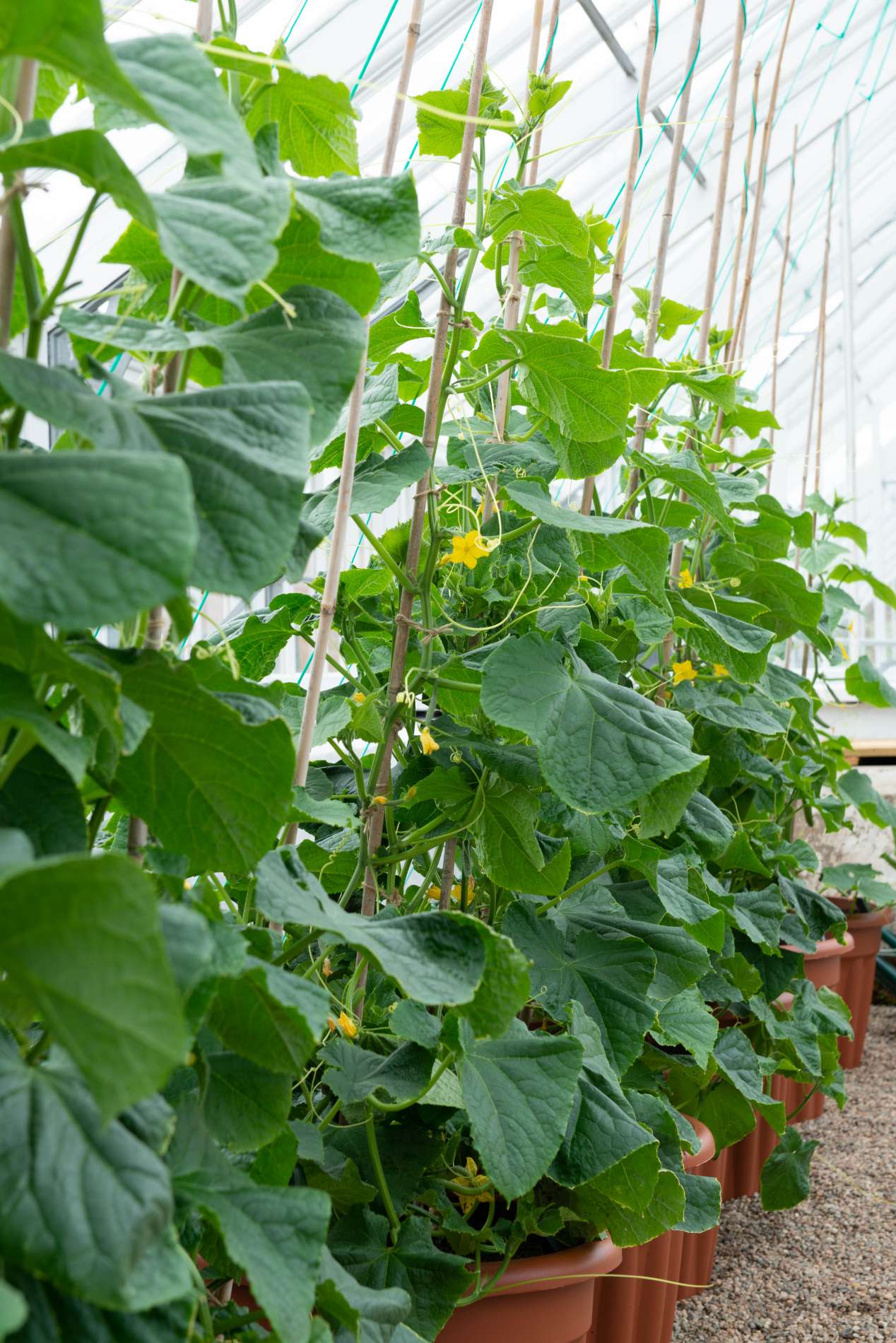
Out on the walls our fruit trees seem to be growing well with plenty of apples, pears and plums starting to swell up. I’m always excited to see the first figs ripening in July. It’s a competition between me and the birds to get them as soon as they’re ready (the birds normally win) but there’s nothing better than eating them on a summers morning straight from the tree, still warm from the sunshine.
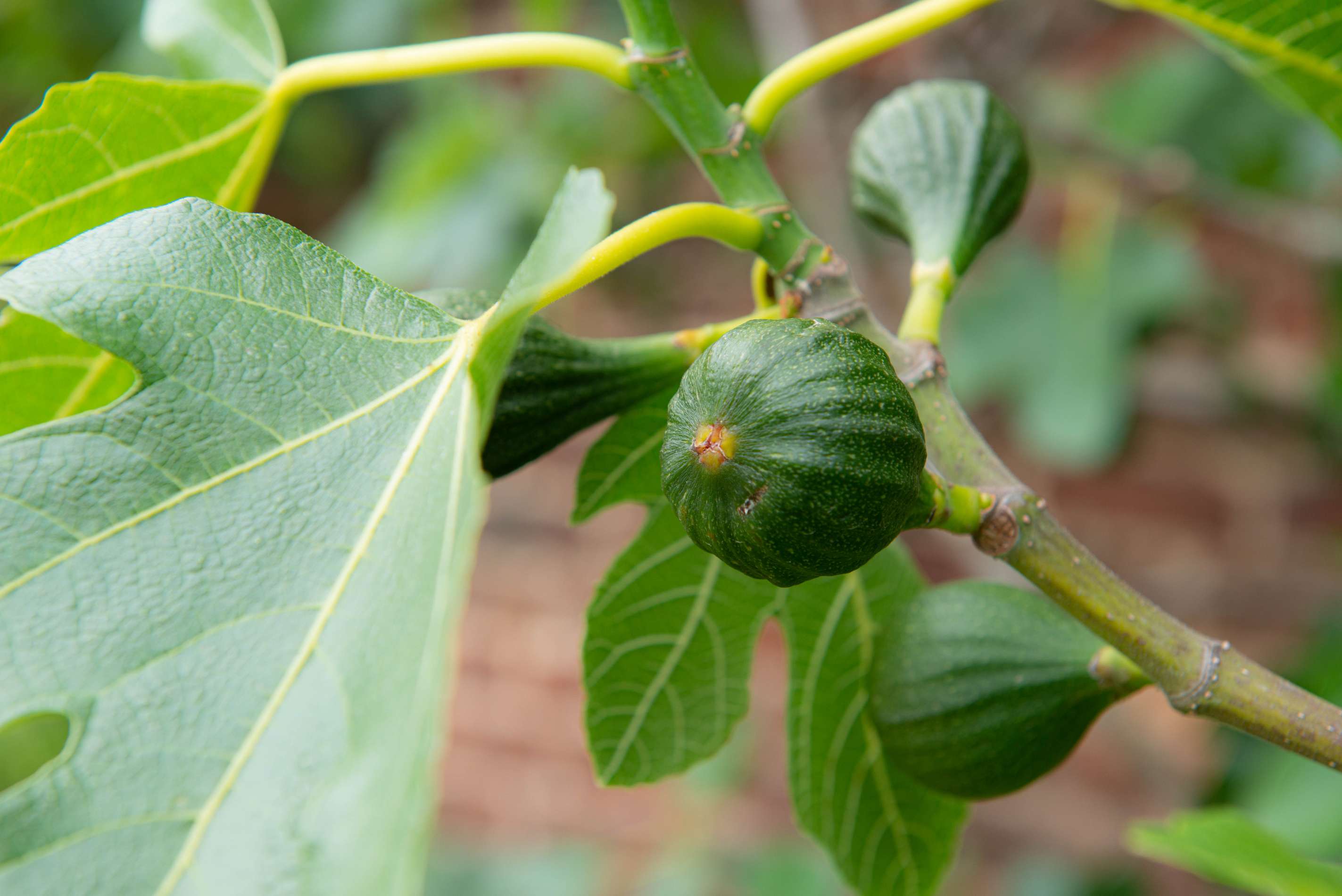
We’re picking cut flowers almost every day now to decorate the café, cottages and castle and we always make up a few extra bouquets for our visitors to take away and brighten up their homes. The sweet peas are the most popular with their bright colours and wonderful scent. There’s nothing like fresh flowers to show someone your love or appreciation and often the most common flowers can make a wonderfully simple arrangement. Alchemilla, Sweet William and Nigella go together to make a beautiful and vibrant combination and you can add in larger flowers such as roses or irises to create a more elaborate bouquet. If that sounds too complicated just come to the walled garden and we’ll do all the hard work for you!
